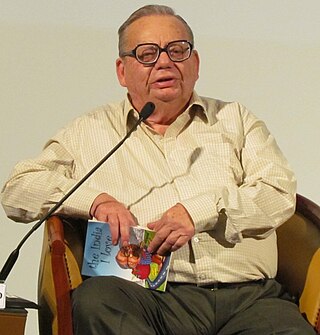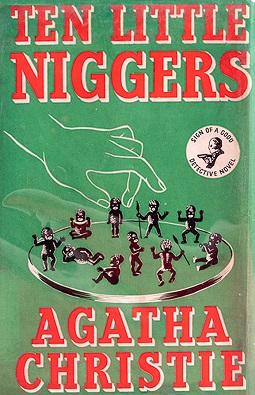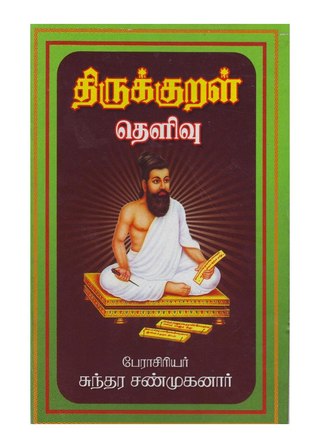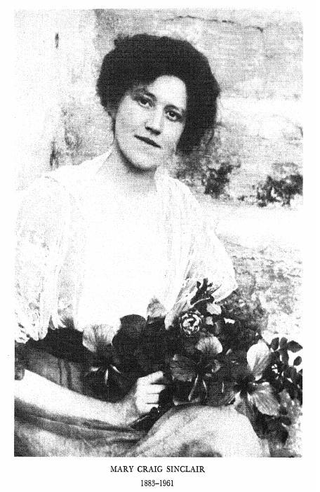Related Research Articles

Barry Charles Cryer was an English writer, comedian, and actor. As well as performing on stage, radio and television, Cryer wrote for many performers including Dave Allen, Stanley Baxter, Jack Benny, Rory Bremner, George Burns, Jasper Carrott, Tommy Cooper, Ronnie Corbett, Les Dawson, Dick Emery, Kenny Everett, Bruce Forsyth, David Frost, Bob Hope, Frankie Howerd, Richard Pryor, Spike Milligan, Mike Yarwood, The Two Ronnies and Morecambe and Wise.

Taslima Nasrin is a Bangladeshi-Swedish writer, physician, feminist, secular humanist, and activist. She is known for her writing on women's oppression and criticism of religion; some of her books are banned in Bangladesh. She has also been blacklisted and banished from the Bengal region, both from Bangladesh and the Indian state of West Bengal.

Mrs. Beeton's Book of Household Management, also published as Mrs. Beeton's Cookery Book, is an extensive guide to running a household in Victorian Britain, edited by Isabella Beeton and first published as a book in 1861. Previously published in parts, it initially and briefly bore the title Beeton's Book of Household Management, as one of the series of guidebooks published by her husband, Samuel Beeton. The recipes were highly structured, in contrast to those in earlier cookbooks. It was illustrated with many monochrome and colour plates.

Ruskin Bond is an Indian author. His first novel, The Room on the Roof, was published in 1956, and it received the John Llewellyn Rhys Prize in 1957. Bond has authored more than 500 short stories, essays, and novels which includes 69 books for children. He was awarded the Sahitya Akademi Award in 1992 for Our Trees Still Grow in Dehra. He was awarded the Padma Shri in 1999 and Padma Bhushan in 2014. He lives with his adopted family in Landour, Mussoorie, in the Indian state of Uttarakhand.. He also wrote 'The Banyan Tree' which is there in 6th class English NCERT book.

Atlanta Nights is a collaborative novel created in 2004 by a group of science fiction and fantasy authors, with the express purpose of producing an unpublishably bad piece of work, so as to test whether publishing firm PublishAmerica would still accept it. It was accepted; after the hoax was revealed, the publisher withdrew its offer.

N. S. Madhavan is an Indian writer of Malayalam literature. Known for his novel, Lanthan Batheriyile Luthiniyakal and a host of short stories such as Higuita, Thiruthu, Chulaimedile Shavangal and Vanmarangal Veezhumpol, Madhavan also writes football columns and travel articles. He is a distinguished fellow of Kerala Sahitya Akademi and a recipient of several major awards including Odakkuzhal Award, Kerala Sahitya Akademi Award for Story, Kerala Sahitya Akademi Award for Novel, Muttathu Varkey Award, Mathrubhumi Literary Award and Crossword Book Award. Kerala State Students Federation Sahithyolsav Award

The Art of Cookery Made Plain and Easy is a cookbook by Hannah Glasse (1708–1770) first published in 1747. It was a bestseller for a century after its first publication, dominating the English-speaking market and making Glasse one of the most famous cookbook authors of her time. The book ran through at least 40 editions, many of which were copied without explicit author consent. It was published in Dublin from 1748, and in America from 1805.

Higurashi When They Cry is a Japanese murder mystery dōjin soft visual novel series produced by 07th Expansion that comprises the first two entries of the When They Cry franchise. The series focuses on a group of young friends living in the fictional village of Hinamizawa and the strange events that occur there in 1983.
John 7 is the seventh chapter of the Gospel of John in the New Testament of the Christian Bible. It recounts Jesus' visit to Jerusalem for the feast of Tabernacles, the possibility of his arrest and debate as to whether he is the Messiah. The author of the book containing this chapter is anonymous, but early Christian tradition uniformly affirmed that John composed this Gospel. Alfred Plummer, in the Cambridge Bible for Schools and Colleges, describes this chapter as "very important for the estimate of the fourth Gospel. In it the scene of the Messianic crisis shifts from Galilee to Jerusalem; and, as we should naturally expect, the crisis itself becomes hotter. The divisions, the doubts, the hopes, the jealousies, and the casuistry of the Jews are vividly portrayed." John 7:1 to 8:59 is sometimes referred to as the "Tabernacles Discourse". Raymond E. Brown describes the Tabernacles Discourse as "a polemic collection of what Jesus said in replies to attacks by the Jewish authorities on his claims".

Cathy N. Davidson is an American scholar and university professor. Beginning July 1, 2014, she is a professor at the Graduate Center of the City University of New York.

And Then There Were None is a mystery novel by the English writer Agatha Christie, described by her as the most difficult of her books to write. It was first published in the United Kingdom by the Collins Crime Club on 6 November 1939, as Ten Little Niggers, after an 1869 minstrel song which serves as a major plot element. The US edition was released in January 1940 with the title And Then There Were None, taken from the last five words of the song. Successive American reprints and adaptations use that title, though American Pocket Books paperbacks used the title Ten Little Indians between 1964 and 1986. UK editions continued to use the original title until 1985.

The Tirukkuṟaḷ, or shortly theKural, is a classic Tamil language text consisting of 1,330 short couplets, or kurals, of seven words each. The text is divided into three books with aphoristic teachings on virtue (aram), wealth (porul) and love (inbam), respectively. Considered one of the greatest works ever written on ethics and morality, it is widely acknowledged for its universality and secular nature. Its authorship is traditionally attributed to Valluvar, also known in full as Thiruvalluvar. The text has been dated variously from 300 BCE to 5th century CE. The traditional accounts describe it as the last work of the third Sangam, but linguistic analysis suggests a later date of 450 to 500 CE and that it was composed after the Sangam period.
The Winds of Winter is the planned sixth novel in the epic fantasy series A Song of Ice and Fire by American writer George R. R. Martin. Martin believes the last two volumes of the series will total over 3,000 manuscript pages. Martin has refrained from making hard estimates for the novel's final release date after several delays. In October 2022, Martin stated he had completed approximately three-quarters of the novel. subsequently estimating that he had written approximately 1,100 to 1,200 pages of the novel, and had roughly 400 - 500 pages left.

Mary Craig Sinclair (1882–1961) was a writer and the wife of Upton Sinclair.

Robin Sharma is a Canadian writer, best known for his The Monk Who Sold His Ferrari book series. Sharma worked as a litigation lawyer until age 25, when he self-published MegaLiving (1994), a book on stress management and spirituality. He initially also self-published The Monk Who Sold His Ferrari, which was then picked up for wider distribution by HarperCollins. Sharma has published 12 other books, and founded the training company Sharma Leadership International.

Breaking Clean is a memoir by Judy Blunt, published in 2002, after a decade in the writing. The book is about Blunt's life in the countryside of eastern Montana, in the United States. In the book the author describes her childhood, and how growing up on a ranch conditioned her whole life.

When Marnie Was There is a novel by British author Joan G. Robinson, first published in 1967 by Collins. The story follows Anna, a young girl who temporarily moves to Norfolk to heal after becoming ill. There she meets a mysterious and headstrong girl named Marnie who lives in a house overlooking the marshes. They develop a secretive relationship they come to cherish. The novel explores themes of alienation, loneliness, and forgiveness in childhood. It received highly positive reviews, praised for its intensity of natural imagery, balance of humour with difficult themes, and emotional weight. The story was adapted to television in 1971 and radio in 2006. In 2014, it was adapted by Studio Ghibli as an animated film of the same name.
Tara Jauhar is a writer and educationist from Delhi, India who has dedicated her life for disseminating the teachings of Sri Aurobindo who was an Indian philosopher, yoga guru, poet and nationalist who advocated a philosophy of life based on spiritual evolution. Tara Jauhar is the Chairman of the Sri Aurobindo Ashram, Delhi Branch which had been founded by her father Surendra Nath Jauhar in the year 1956. In the year 2022, Govt of India honored her with the Padma Shri award for her life long work dedicated to spreading the teachings of Sri Aurobindo.

Journeys through the Radiant Citadel is an adventure anthology for the 5th edition of the Dungeons & Dragons fantasy role-playing game. Each adventure was created by an author of color. Additionally, this book introduces a new location within the Ethereal Plane which acts as a hub city for the various adventures. In March 2023, it was nominated for the Nebula Award for Best Game Writing.

Venu Dattatreye Chitale, also known as Leela Ganesh Khare, was an Indian writer, BBC Radio broadcaster, and secretary to George Orwell during the early years of the Second World War.
References
- ↑ "Who Will Cry When You Die". The Times of India. Retrieved 29 January 2016.
- ↑ "7 life-changing questions to ask before financial planning" . Retrieved 29 January 2016.
- ↑ "Now Indian writers pen for the masses". The Hindu. Retrieved 29 January 2016.